Call for Papers (Deadline expired)
Call for Papers
ICAPS 2011, the 21st International Conference on Automated Planning and Scheduling, will take place in Freiburg, Germany, June 11–16, 2011. ICAPS 2011 is part of the ICAPS conference series, the premier forum for exchanging news and research results on theory and applications of intelligent planning and scheduling technology.
The organizing committee of the 21st International Conference on Automated Planning & Scheduling (ICAPS'11) invites paper submissions on topics related to automated planning and scheduling. The purpose of the conference is to promote research in automated planning and scheduling through analysis and dissemination of the foundational theory, the technologies, and their application to significant problems. The focus of the conference program is on:
- Analytic and empirical studies of planning and scheduling problems as well as algorithms for solving them;
- Studies applying automated planning and scheduling technologies to real problems and descriptions of deployed applications;
- Techniques that extend the complexity and the types of problems that can be solved with current techniques; and
- Analytic and implemented tools for supporting automated planning and scheduling.
We especially welcome application papers providing novel insights about either planning and scheduling, or their application in the real world, as well as papers that bring into planning useful computational technologies from other areas of AI/CS.
For this edition of ICAPS, two types of papers can be submitted:
- Full technical papers
- Short papers
The authors will indicate the type of paper at submission time. Full papers can be up to 8 pages long, while short papers can be up to 4 pages long. Submissions must be in the AAAI format. For more information, see the submission instructions. The proceedings will be published by AAAI Press.
All accepted papers will be published in the main conference proceedings and will be presented orally at the conference (full papers will be allocated more time). Authors of award-winning papers (best papers, best student papers and runners-up) will have a choice of submitting extended versions of their papers to either the "best paper track" of the Journal of Artificial Intelligence Research or to Artificial Intelligence. Both journals will fast-track such submissions.
Author and Reviewer Guidelines
All papers will be reviewed based on the standard criteria of clarity, relevance, significance, originality, and soundness.
Full technical papers are expected to report on new research that makes a substantial technical contribution to the field and is placed in the context of existing work.
Short papers can report on new research or other issues of interest to the ICAPS community. Examples of work suitable for short papers include: novel ideas that are not yet fully developed or whose scope is not large enough for a full paper; important implementation techniques; novel interesting benchmark problems; short experimental studies; interesting applications that are not yet completely solved or analyzed; position or challenge papers; etc.
Authors making multiple submissions must ensure that each submission has significant unique content. Papers submitted to ICAPS'11 may not be submitted to other conferences or journals during the ICAPS'11 review period nor may they be already under review or published in other conferences or journals. Over-length papers will be rejected without review.
Topics include (but are not limited to) the following:
- adversarial planning
- applications and case studies of planning and scheduling techniques
- classical planning
- complexity analysis for planning and scheduling
- conformant/contingent planning
- constraint reasoning/OR techniques for planning and scheduling
- distributed and multi-agent planning and scheduling
- hierarchical task network planning and knowledge-based planning
- knowledge acquisition and engineering for planning and scheduling
- machine learning for planning and scheduling
- plan and schedule execution, monitoring and repair
- plan recognition
- planning and scheduling under uncertainty
- planning with resources and time constraints
- real-time planning and scheduling
- robot planning
- search for planning and scheduling
Important Dates
The timetable for paper submissions and reviewing is as follows:
| Electronic abstracts: | November 19th, 2010 |
| Electronic PDF papers: | November 29th, 2010 |
| Notification of acceptance: | January 18th, 2011 |
The reference timezone for all deadlines is UTC-12. If you are in time anywhere on the world, you are in time.
Organizing Committee
Conference chairs:
- Malte Helmert (University of Freiburg, Germany)
- Stefan Edelkamp (University of Bremen, Germany)
Program chairs:
- Fahiem Bacchus (University of Toronto, Canada)
- Carmel Domshlak (Technion, Israel)

